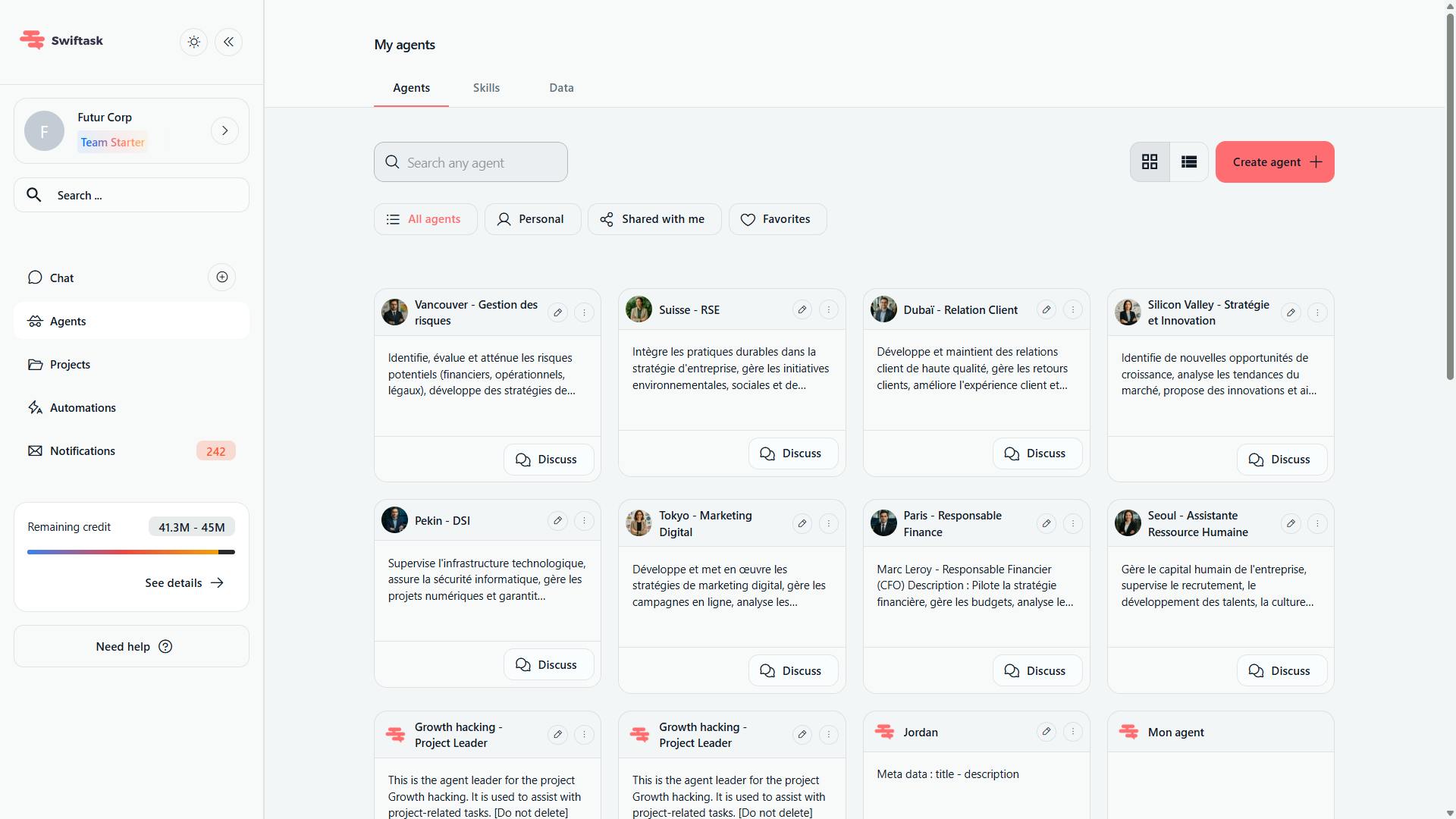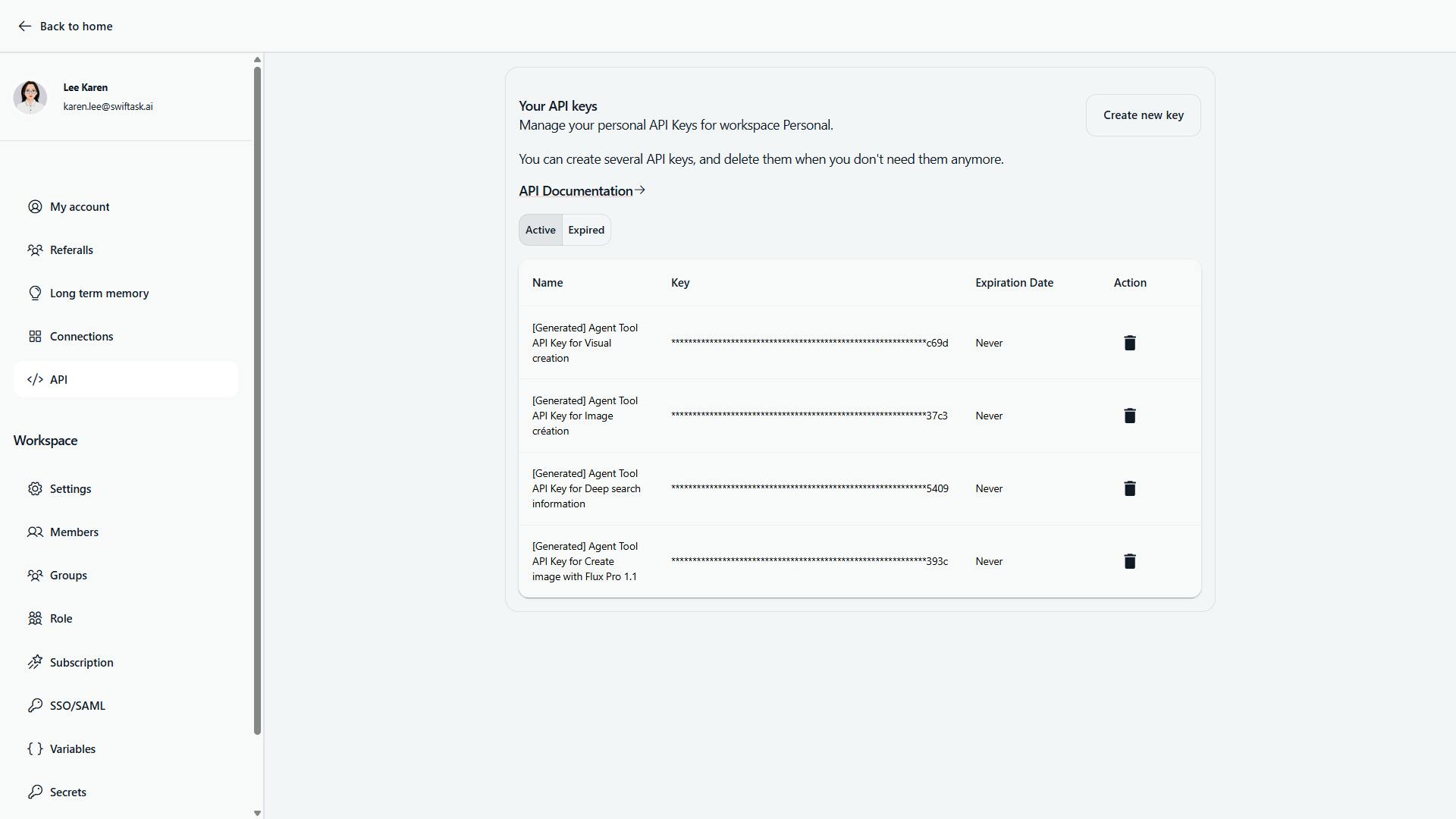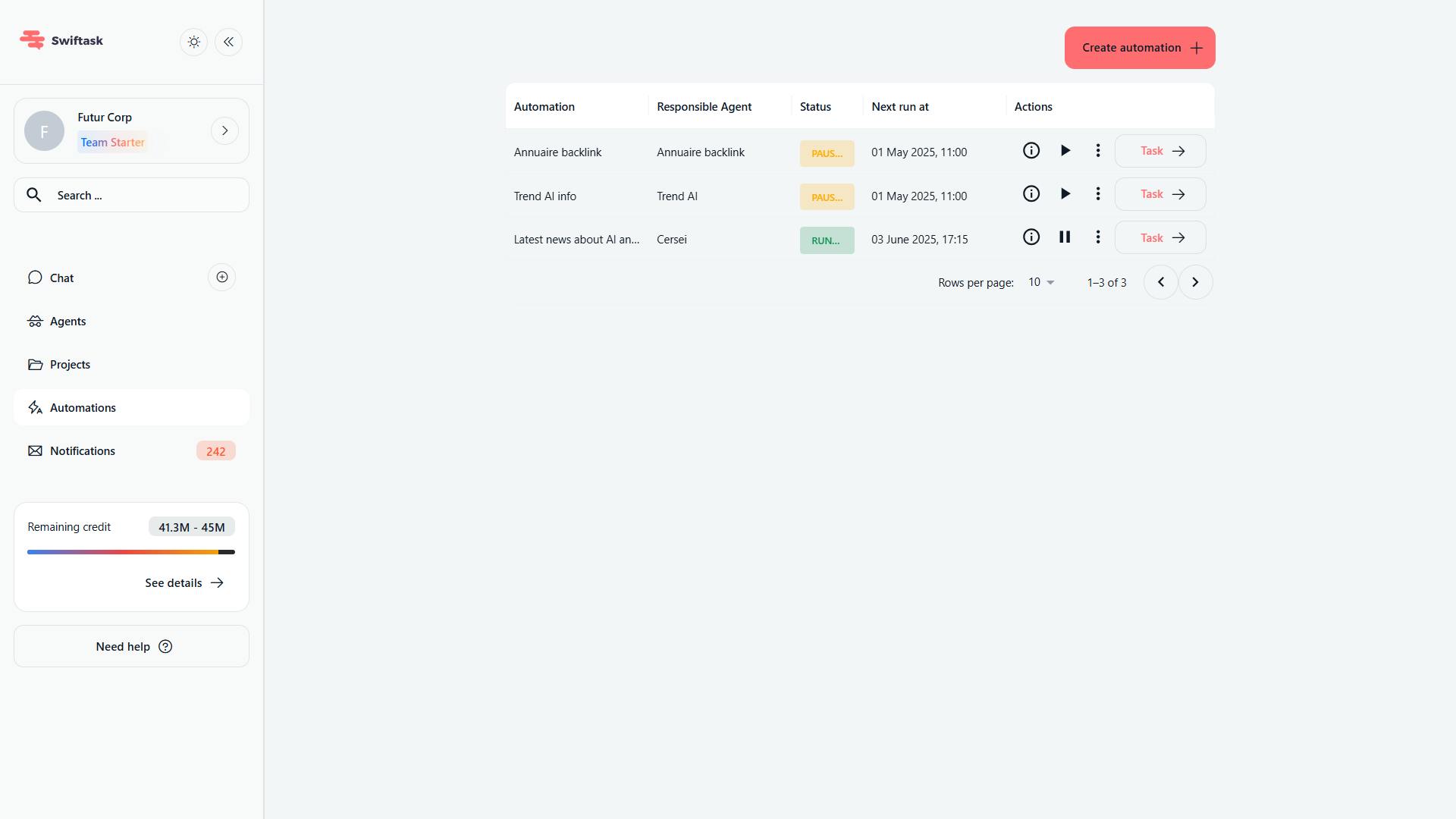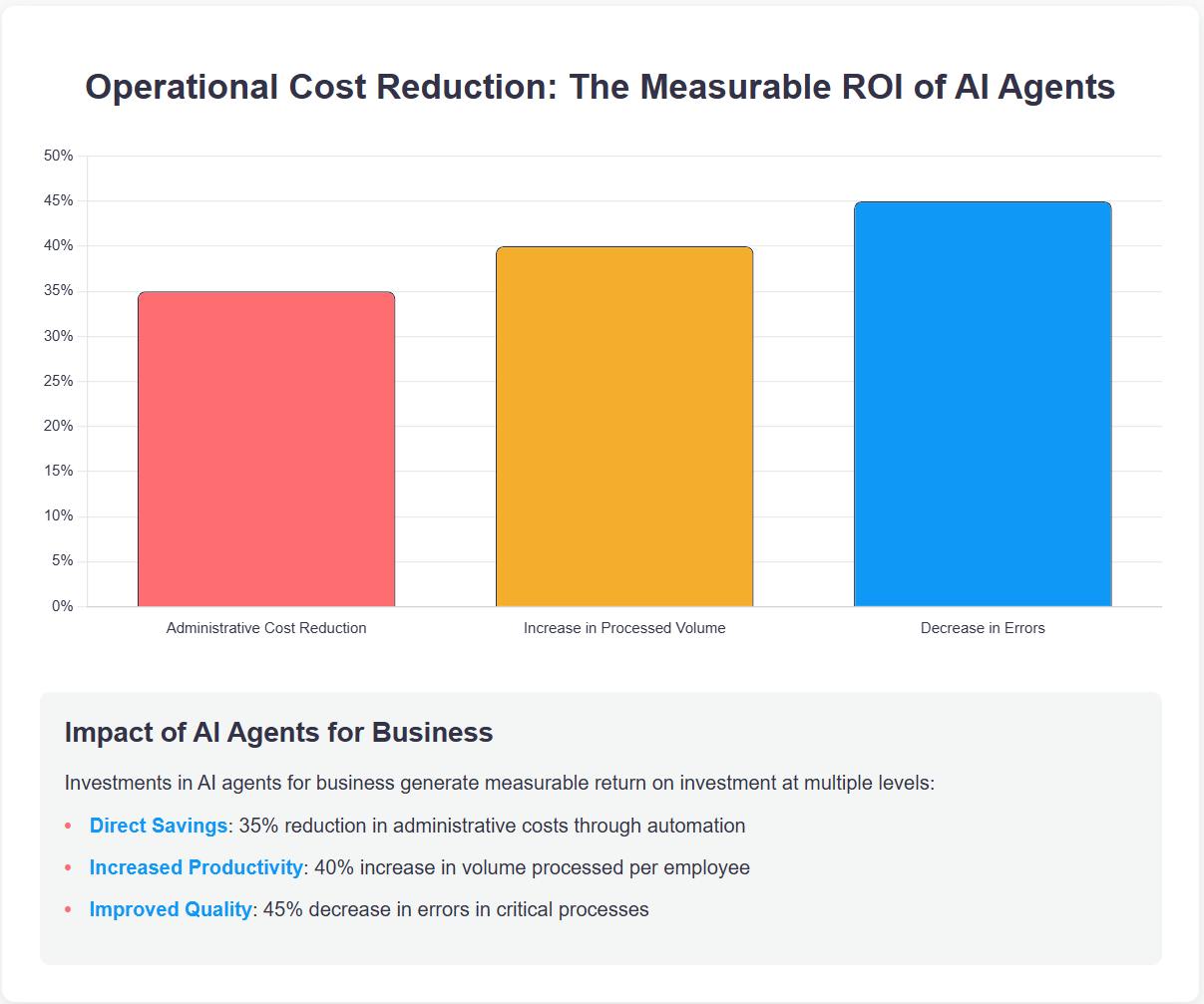Table of contents :
AI agent for business: what are its impacts ?
Transform your business with AI agents! In 2024, 85% of organizations plan to integrate AI agents to automate their processes by 2025, according to a recent Salesforce study. This revealing statistic illustrates the acceleration of artificial intelligence in workflows, creating a bridge between humans and machines.
Ready to transform your business with AI?
Discover how AI can transform your business and improve your productivity.
AI agents for business are no longer just a technological trend but a transformative reality that redefines enterprise system integration and drives digital transformation. Discover how these autonomous agents can revolutionize your organization, from productivity optimization to personalization of customer interactions.
AI agent at the heart of digital transformation
What exactly is an AI agent for business?
An AI agent for business is an autonomous artificial intelligence system capable of interacting with professional environments, executing complex tasks, and making contextual decisions without constant human intervention. Unlike simple chatbots, these agents combine advanced natural language processing, learning capabilities, and connectivity to existing information systems. They constitute the cornerstone of digital transformation by enabling intelligent automation of critical business processes.
Companies like Swiftask offer all-in-one platforms bringing together more than 80 advanced AI tools, allowing the creation of customized AI agents without requiring programming skills. These agents can be configured to access company-specific knowledge bases and use various skills or tools to interact with external software.
How autonomous agents are redefining professional workflows?

Autonomous agents are radically transforming how companies manage their daily operations. According to McKinsey, generative AI could contribute between $2.6 and $4.4 trillion annually to the global economy. This value mainly comes from redefining professional workflows:
- Cognitive task automation: document analysis, report writing, information synthesis
- Cross-department coordination: automated project tracking and contextual information transmission
- Decision support: providing insights based on predictive analysis of business data
Organizational performance is considerably improved, with operational efficiency gains of 55% and cost reductions reaching 35% for user companies.
Seamless integration with existing systems: challenge met
Enterprise system integration often represents a major challenge in adopting new technologies. Modern AI agents excel precisely in this area thanks to their API integration capabilities with existing infrastructures. This interoperability allows:

- Connecting agents to CRMs, ERPs, and document management systems
- Leveraging data from multiple sources without disruption
- Maintaining business process continuity during digital transition
Platforms like Swiftask offer various data connector options (PDF, Azure, YouTube, SQL databases, websites) facilitating the feeding of agents with relevant information without completely overhauling systems.
Intelligent automation: beyond repetitive tasks
Which business processes can be entrusted to AI agents?
Process automation by AI agents goes far beyond basic administrative tasks. The most impactful AI agent use cases include:
- Enhanced customer service: instant response to frequent questions, intelligent escalation to humans for complex cases
- Document management: extraction of key information, automatic classification, generation of executive summaries
- Strategic monitoring: continuous surveillance of information sources, trend detection, and contextual alerts
- Employee onboarding: personalized training and continuous assistance during job integration
- Predictive maintenance: analysis of weak signals and optimized planning of interventions

These applications enable significant operational cost reduction while freeing up employees for higher value-added tasks.
Artificial intelligence in workflows: concrete implementation cases
Artificial intelligence in workflows manifests through concrete transformations observable in various sectors:
In the banking sector, institutions like BNP Paribas deploy AI agents that automate document compliance verification, reducing processing time by 60% while improving control accuracy.
In manufacturing, AI agents orchestrate supply chains in real-time, adjusting orders and production according to demand forecasts generated by predictive analysis.
For law firms, specialized AI agents analyze thousands of pages of case law in minutes, identifying relevant precedents that lawyers can leverage in their arguments.
Operational cost reduction: the measurable ROI of AI agents

Investments in AI agents for business generate measurable return on investment at several levels:
- Direct savings: 35% reduction in administrative costs through automation
- Increased productivity: 40% increase in volume processed per employee
- Improved quality: 45% decrease in errors in critical processes
Companies invested $4.6 billion in generative AI in 2024, eight times more than in 2023, testifying to the growing recognition of these tangible benefits. To maximize this ROI, organizations must proceed in stages, starting by identifying high-impact processes before deploying AI agents more widely.
Human-machine collaboration: a new professional paradigm
How is human interaction with AI transforming professions?
Human interaction with AI fundamentally redefines professional roles rather than simply replacing them. This emerging human-machine collaboration is characterized by:
- Delegation of repetitive and analytical tasks to AI agents
- Refocusing human skills toward creativity, empathy, and critical judgment
- The emergence of new interface professions such as "prompt engineers" and "AI trainers"
According to the World Economic Forum, while 300 million jobs could be automated, 97 million new positions directly related to AI should emerge by 2025. This transformation requires skill adaptation and a clear vision of the company's AI strategic direction.
Team training and personalized support: key success factors
Team training constitutes the main factor of success or failure in adopting AI agents. Leading companies in this field implement:
- AI acculturation programs for all employees
- Specific training paths according to professions and uses
- Personalized support during implementation phases
Offerings like those from Swiftask integrate this dimension with services structured in three phases: AI acculturation, identification of business needs, and support for agent creation. This progressive approach promotes appropriation and maximizes the impact of deployed solutions.
Data security and sovereignty: critical issues to master
The adoption of AI agents raises fundamental questions of data security and data sovereignty. These concerns must be addressed from the design of solutions:
- Choice of AI models respecting confidentiality standards (GDPR in Europe)
- Implementation of strict policies for accessing sensitive data
- Hosting solutions on infrastructures guaranteeing sovereignty
Modern platforms like Swiftask offer sovereignty badges and eco-responsibility indicators for each available AI model, allowing companies to make informed choices according to their security requirements and environmental concerns.
Development of customized agents: tailored solutions
Why is NLP essential for high-performing AI agents?
NLP for AI agents (Natural Language Processing) constitutes the fundamental technology enabling agents to understand and generate natural human language. Its importance is crucial for several reasons:
- It allows contextual understanding of requests, even ambiguous ones
- It facilitates the extraction of relevant information from unstructured documents
- It makes possible the generation of coherent responses adapted to the professional context
Recent advances in advanced natural language processing, particularly with models like GPT-4o, Claude 3.5 Sonnet, or Mistral, have considerably improved the relevance of AI agents in complex professional contexts, where nuance and precision are essential.
AI agent frameworks and advanced language models: practical guide
The development of effective AI agents relies on the judicious selection of AI agent frameworks and advanced language models adapted to the specific needs of the company:
- Base model selection: evaluate the strengths and weaknesses of different LLMs (GPT, Claude, Mistral, Llama) according to use cases
- Customization by fine-tuning: adapt the model to the specificities of the sector and business vocabulary
- Skills construction: integrate specific capabilities such as data analysis, content generation, or integration with external APIs
- Agent orchestration: define how multiple specialized agents can collaborate on complex tasks
No-code platforms like Swiftask considerably simplify this process by allowing non-technical users to create and deploy customized agents without programming, while offering the necessary flexibility for advanced use cases.
Solution scalability: adapting AI to company growth
AI solution scalability represents a strategic issue to ensure that investments made today will remain relevant in the face of company growth and evolving needs:
- Progressive scaling: start with pilot projects before wider deployment
- Modular architecture: favor solutions allowing addition of capabilities without complete redesign
- Continuous integration: implement mechanisms for user feedback and continuous improvement
Subscription offerings like those from Swiftask (Team Starter, Team Growth, and custom offers) allow this flexibility with plans adapted to different organization sizes, from 10 to more than 50 users, with adjustable token credit volumes according to needs.
Organizational performance amplified by AI agents
Which performance indicators to monitor after deployment?
Monitoring organizational performance after implementing AI agents requires a multidimensional approach with specific indicators:
- Efficiency metrics: time saved, volume processed, response time
- Quality indicators: error rate, response accuracy, user satisfaction
- Adoption measures: frequency of use, diversity of use cases, number of active users
- Financial impact: savings realized, revenue generated, overall ROI
It is crucial to establish a baseline before deployment to precisely measure the gains obtained. According to a McKinsey study, more than 80% of companies do not yet see a tangible impact on their EBIT, often due to lack of methodical monitoring of these indicators.
Improved customer experience: case studies and testimonials
Improved customer experience constitutes one of the most visible benefits of adopting AI agents:
Case study - Banking sector: A major European bank deployed AI agents for its customer service, reducing response time from 24 hours to 3 minutes on average, while increasing customer satisfaction by 32%.
Testimonial - E-commerce: "Our customized AI agents have transformed our customer relationship by offering ultra-relevant product recommendations and 24/7 support. Our conversion rate increased by 28% in six months." - Digital Director of an e-commerce platform.
Use case - Healthcare: Specialized virtual assistants help patients navigate their care pathways, remind them of appointments, and answer frequent questions, freeing up healthcare staff for interactions requiring medical expertise and empathy.
AI strategic direction: preparing the company for future innovations
Establishing a clear AI strategic direction is essential to maximize the long-term benefits of AI agents:
- Create an AI-centered company vision: define how AI integrates into the overall strategy
- Develop a progressive roadmap: plan deployments in phases with clear objectives
- Cultivate internal AI talent: invest in artificial intelligence training for employees
- Stay alert to innovations: maintain a watch on generative artificial intelligence and new models
Companies that succeed in their digital transformation through AI, like Swiftask, adopt a continuous improvement approach where each deployment feeds the next with lessons learned and user feedback.
AI agents for business represent much more than a simple technological advance – they constitute a lever for profound transformation of the professional world. Their ability to intelligently automate processes, integrate with existing systems, and collaborate effectively with humans makes them strategic tools for any organization seeking to remain competitive.
To succeed in this transformation, companies must adopt a balanced approach, combining technological innovation and human support. Solutions like Swiftask, which offer both advanced technical platforms and acculturation services, perfectly illustrate this philosophy.
The future belongs to organizations that will know how to leverage these AI agents not just as simple automation tools, but as true partners in their quest for operational excellence and differentiating customer experience. Looking for a simple solution? Start by identifying a high-impact use case in your company and explore how an AI agent could transform this specific process.
author
OSNI

Published
June 03, 2025
Ready to transform your business with AI?
Discover how AI can transform your business and improve your productivity.